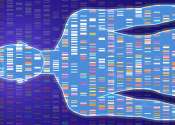A new genetic fingerprint lives in your belly
Our bodies contain far more microbial genes than human genes. And a new study suggests that just as human DNA varies from person to person, so too does the massive collection of microbial DNA in the intestine.
Dec 5, 2012
0
0






